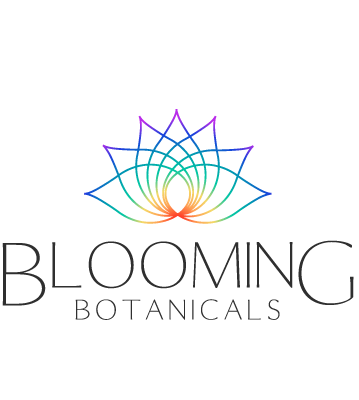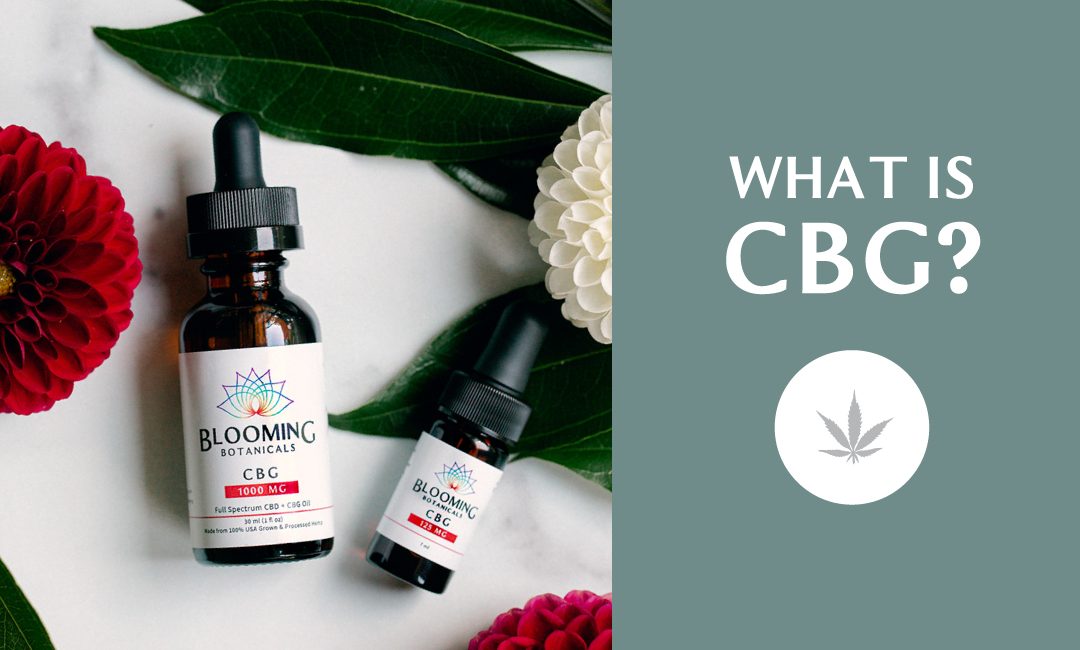The cannabis plant has over 100 different cannabinoids. Among these cannabinoids, CBD (cannabidiol) and THC (tetrahydrocannabinol) are the most abundant, researched, and well known.
Recently, there has been heightened interest in a minor and rare cannabinoid called CBG (cannabigerol).
What Does CBG Do?
Many cannabinoids actually start off as CBG, which then breaks down to create other cannabinoids, such as CBD and THC as the plant matures.
This happens because CBG forms very early on in the plant’s growing stages.
The interest in this cannabinoid is because both brands and consumers see its potential in alleviating various health issues and its potential benefits compliment those of CBD while still offering something a little different.
CBG is found in cannabis strains that have high CBD levels and low THC levels like hemp. It is non-psychoactive and won’t lead to any high feeling. This cannabinoid is available in fewer quantities than CBD and equates to around 1% of the hemp plant.
Because hemp is only comprised of around 1% CBG, various brands often seek ways like genetic manipulation to have strains and products high in CBG.
Now you know what cannabigerol (CBG) is, before getting your first CBG product, let’s find out how it is made, how it differs from CBD, and what potential benefits CBG offers.
How Is CBG Made?
CBGA (cannabigerolic acid) is the acidic form of CBG and is where all cannabinoids are derived. It is the foundational compound of all the other cannabinoids, hence being known as the mother of all cannabinoids.
CBGA produces CBDA (cannabidiolic acid), THCA (tetrahydrocannabinolic acid), and CBCA (cannabichromenic acid).
CBDA becomes CBD, THCA becomes THC, and CBCA becomes CBC (cannabichromene) which is another lesser known, but vital cannabinoid.
Once these cannabinoids are produced and the conversion process is done, you will only have trace amounts of CBGA. The little CBGA remaining leads to the final formation of CBG when heat is applied (decarboxylation).
Therefore when harvesting hemp, you will only have very small quantities of CBG, which presents a challenge in creating premium quality products.
However, what we have learned is that in young hemp plants, you can find high amounts of CBG (cannabigerol).
This is because CBGA has not been through the process of converting into other cannabinoids, like CBD and THC yet. So the earlier you harvest, the higher the CBG levels.
Researchers are also looking into whether more CBG can be produced by hemp through selective breeding and genetic alteration.
This research has led to some high CBG cannabis strains you might be familiar with like Dynamite OG, Allen Wrench, Jack Herer, Animal Cookies, and Alien OG.
Difference Between CBD and CBG?
There are some similarities between CBG and CBD, such as the fact that they are both non-psychotropic. They will not make you high and are not mind-altering. They are both derived from the hemp plant.
But the differences include the fact that in the hemp plant, CBG is usually found in much smaller concentrations than CBD and it effects our bodies and cannabinoid receptors in slightly different ways.
How CBD and CBG interact with the endocannabinoid system (ECS) is quite different.
The ECS is responsible for maintaining equilibrium in most of your bodily functions like sleep, mood, anxiety and, it helps in promoting homeostasis (balance).
CBD does not directly bind to receptors within the endocannabinoid system, rather it indirectly supports the body’s natural production of endocannabinoids, which keep our mind and bodies running smoothly.
CBG on the other hand, directly binds and interacts with receptors CB1 and CB2. These different ways of interaction also lead to CBD and CBG to have very distinct health benefits.
Another notable difference is the research levels of these two cannabinoids. CBD is the most researched cannabinoid, but CBG’s rarity makes it less scrutinized.
With its gradual rise in popularity, there is starting to be more interest and more scientific studies and analysis.
The Potential Benefits of CBG
CBG (cannabigerol) is a non-psychoactive cannabinoid found in the cannabis plant that has been studied for its potential therapeutic effects.
While research on CBG is still in its early stages, some of the potential benefits of CBG that have been studied include:
Anti-cancer Properties
A 2014 study on mice investigated whether CBG protects against an increase of colon cancer cells and growth.
The study found that CBG reduced cell growth in these cancer cells, hence CBG inhibited the growth of tumors.
CBG also mitigated colon cancer progression and selectively inhibited the growth of cancer cells. CBG should be considered in cancer prevention and treatments.
Cancer affects a huge amount of people in the US and around the world. And with new cancer cases on the rise every day, finding a product that may help mitigate its destructiveness is a lifesaver.
While CBG is in no way a cure for cancer, it does show promise and potential in fighting cancer cells. Therefore doing more research and analysis on it is necessary and encouraged.
Glaucoma Treatment
Glaucoma is an eye condition that can harm your optic nerve, which is responsible for your vision. The optic nerve translates visual information from your eyes to your brain. When someone has Glaucoma, this nerve is damaged because of high pressure building up in your eye.
Glaucoma is the second most common cause of blindness worldwide. And around 80 million people have it worldwide.
By utilizing CBG products, you can mitigate the negative effects of glaucoma, specifically for the individual at a higher risk, such as people over the age of 60.
A 2008 study showed that cannabinoids like CBG decrease intraocular pressure (fluid pressure inside the eye). Because of this, CBG can be used as a possible therapeutic remedy for glaucoma, which is caused by increased pressure.
Neuroprotective Effects
Huntington’s disease is passed down from generation to generation and is the result of faulty genes. It essentially entails a degeneration or breakdown of nerve cells within your brain. An individual troubled with this condition may have difficulty concentrating, moving, and even speaking.
A 2015 study on mice with Huntington’s disease and whether CBG might help was conducted. A series of genes were identified as linked to Huntington’s disease, whose expression was altered in mice but partially normalized by CBG treatment.
Overall, there was a reduction in the aggregation of Huntington in CBG-treated animals. This result opened new research avenues for the use of CBG, alone or in combination with other phytocannabinoids or therapies to alleviate and treat neurodegenerative diseases such as Huntington’s disease.
Inflammatory Bowel Disease (IBD) Treatment
Inflammatory bowel disease is a condition that affects your digestive system and is characterized by inflammation in your intestines.
It is an incurable disease and most medications utilized are simply for alleviating the symptoms.
Inflammatory bowel diseases affect as many as 1.6 million Americans. Most of them are diagnosed before age 35. As many as 70,000 new cases of IBD are diagnosed in the United States each year.
A 2013 study investigated the effect of CBG (cannabigerol) in mice induced with colitis, which is a digestive disease described by inflammation of the inner lining of the colon.
Turns out, CBG reduced colon weight/colon length ratio. Because CBG reduced overall colitis inflammation, this means it could potentially be considered for clinical experimentation in IBD patients.
Another research study also highlighted and supported the idea that CBG appears to be a novel compound for mitigation of inflammatory diseases.
Antibacterial Properties
Everyone has bacteria in our bodies. Some bacteria are good and some can be harmful and lead to various infections and diseases. When dealing with such harmful bacteria, CBG might be helpful.
A 2008 study showed CBG’s potent activity against a variety of methicillin-resistant Staphylococcus aureus (MRSA) infections, otherwise known as Staph infections, caused by Staphylococcus (staph) bacteria.
This bacterium is resistant to different antibiotics, but CBG appeared to be effective.
Another 2020 study described that researchers found the cannabinoid, cannabigerol (CBG), to also be effective in mice against the resilient family of bacteria known as methicillin-resistant Staphylococcus aureus (MRSA).
CBG prevented the ability of MRSA bacteria to form biofilms, which are communities of microorganisms that attach to surfaces. And it destroyed pre-formed biofilms and cells resistant to antibiotics.
CBG achieved this by targeting the cell membrane of the bacteria. This findings suggests real therapeutic potential for cannabinoids like CBG as antibiotics.
Is CBG Legal?
The 2018 Farm Bill made it legal to use CBG and other cannabinoids as long as they were derived from hemp, not marijuana, and had a THC concentration of less than 0.3 percent.
We still recommend always performing your due diligence to ensure CBG products are acceptable in the state you are residing or traveling.
Where to Buy CBG
The available research shows what possibilities exist with using CBG. But there is limited research, making it tough to have conclusive ways it can help your health.
However, it is still becoming more popular as an alternative to treat different health issues and introductory studies and anecdotal evidence supports its potential efficacy.
There is a growing curiosity and interest in what CBG (cannabigerol) is and why we should use it since, unlike CBD, it interacts with our endocannabinoid receptors differently and also offers a different host of health benefits.
It can be utilized in glaucoma mitigation, fighting cancer cells, IBD relief, alleviating Huntington’s disease, and has antibacterial properties.
While CBG is not a cure-all for any of these ailments, it can be employed to help with the symptoms and compliment treatment.
If you are interested or plan to start using a CBG product as a first-time CBD user, always seek the guidance or advice of your doctor or healthcare provider.
It’s important to keep in mind that CBG is a relatively new cannabinoid on the market and there is not enough research yet to determine definitively what it’s capable of.
What we do see so far is promising. Check out Blooming Botanicals newly launched CBG tincture today!

